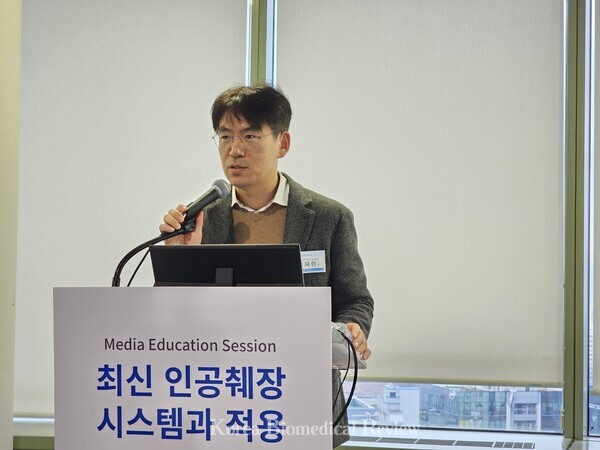Korea's diabetes management landscape is experiencing a transformation with the increased use of continuous glucose monitoring (CGM) systems and advanced artificial pancreas technologies.

This shift, particularly impactful for pediatric type 1 diabetes patients, was a focal point in a recent media education session held by Medtronic Korea, featuring Professor Kim Jae-hyun of the Department of Pediatrics at Seoul National University Bundang Hospital.
"With the emergence of CGM, we have seen a fundamental change in the strategy of maintaining target blood sugar levels, especially in children and adolescents with type 1 diabetes," Kim said. "This technology allows for a more nuanced approach, moving from loose control to effectively lowering glycated hemoglobin levels."
A study of targeted time in range (TIR) in type 1 diabetes patients using various device combinations found that TIRs reached the recommended level of 70 percent or higher when utilizing artificial pancreas systems.
However, despite the technological progress, Kim expressed concerns regarding the adoption rate of these systems in Korea.
"While international guidelines, including those from the American Diabetes Association (ADA), have been advocating for the provision of automatic insulin delivery systems to patients with type 1 diabetes, Korea faces challenges in meeting these standards," he said. "The discrepancy between international guidelines and domestic adoption rates is a point of concern as it is evident that our country's rate of insulin pump therapy significantly lags behind other nations."
There is a pressing need for rational fee structures for insulin pump therapy, expansion of care support, and transition of existing care benefits to accommodate these advanced treatments, he added.
Medtronic has been a leader in technological innovation for diabetes care for over 40 years since commercializing the first insulin pump in 1983.
The company is known to possess all the necessary diabetes solutions for implementing artificial pancreas systems, including continuous glucose monitoring devices, insulin pumps, and data monitoring and analysis algorithms.
The company has most recently launched the next-generation integrated closed-loop control system, the MiniMed 780G system. This system, based on the SmartGuard auto mode feature, automatically adjusts and administers not only basal insulin but also correction insulin.
The system is set with a target for correction insulin at 120 mg/dL. If the sensor glucose value exceeds this, the system automatically injects correction insulin to prevent high blood sugar.
This feature allows patients to maintain appropriate blood sugar levels within the targeted range, even if the carbohydrate counting from meals is not perfect when using the bolus calculator.
"Diabetes is one of the four main portfolios that Medtronic focuses on, along with cardiovascular, neurosciences, and surgical solutions," Medtronic Korea CEO Yoo Seung-rok said. "We will work hard to enhance the accessibility of the artificial pancreas system in the lives of patients, based on a deep understanding of the everyday challenges faced by patients with Type 1 diabetes."

